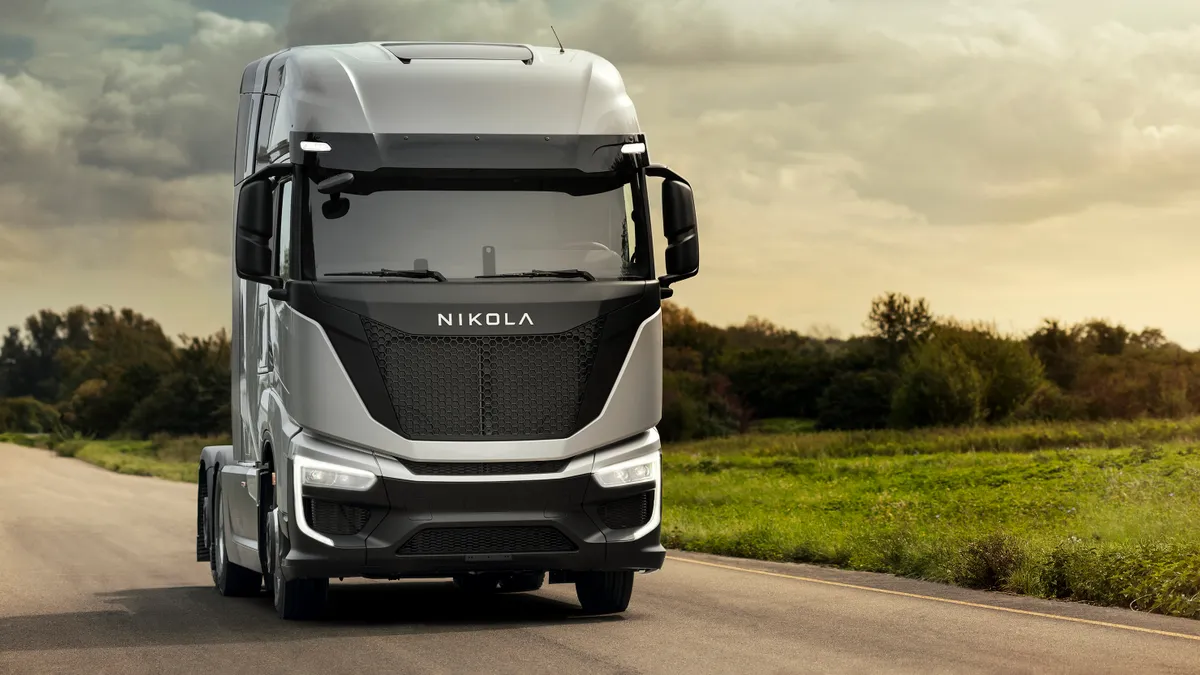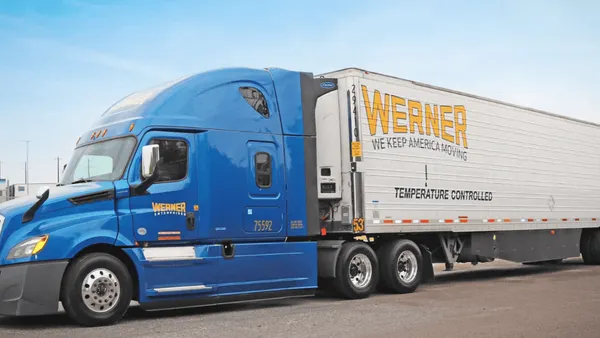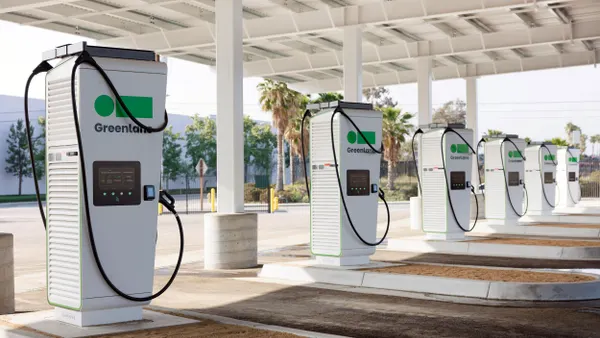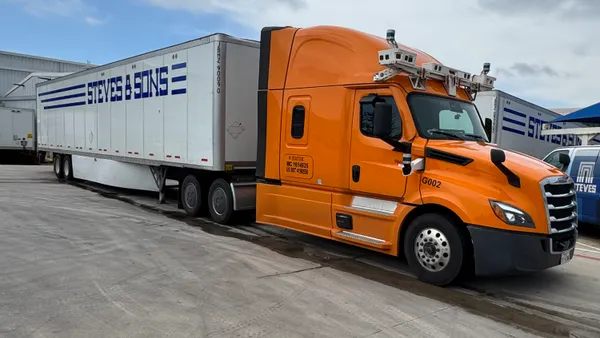Dive Brief:
- Bosch has started volume production of hydrogen fuel cell modules for commercial trucks, the company said last week.
- Electric truck maker Nikola Corp will be the pilot customer for the fuel cell modules.
- Bosch is planning to invest nearly $2.8 billion in fuel cell development and manufacturing from 2021 to 2026.
Dive Insight:
Hydrogen-powered fuel cells are a viable alternative power source for electric commercial trucks, according to the U.S. Department of Energy. Fully-electric trucks, on the other hand, require a large, heavy battery with long charge times, making them less ideal for commercial use, according to consulting firm McKinsey & Company.
By 2030, Bosch expects one in five new trucks weighing six tons or more globally to feature a fuel-cell powertrain.
The first fuel cell modules produced by Bosch in Germany will be used for the Nikola Tre FCEV Class 8 truck. Bosch also plans to manufacture fuel cell stacks in China and eventually at its U.S. factory in Anderson, South Carolina.
Fuel cells combine hydrogen and oxygen to generate electric power, so electric trucks can be equipped with a much smaller battery that provides additional power during acceleration in conjunction with the fuel stack. Additional energy is stored in the battery via regenerative braking, just like in an electric car.
Unlike diesel-powered trucks, hydrogen fuel cell vehicles also produce zero tailpipe emissions. Water is the only byproduct of a fuel-cell vehicle.
“A hydrogen engine can do everything a diesel engine does, but on top of that, it is carbon neutral. It also allows a fast and cost-effective entry into hydrogen-based mobility,” Bosch Mobility Chair Markus Heyn said in a statement.
Nikola’s hydrogen fuel cell Class 8 truck will have a max range of 500 miles and produce 536 horsepower, according to the company. The fuel cell modules in the Nikola Tre FCEV deliver 200 kW of power when combined with a 164 kWh battery pack. The liquid hydrogen is stored onboard in pressurized tanks, and refilling the tanks takes about 20 minutes.
Nikola expects that North American deliveries of its Class 8 fuel cell truck will begin later this year.













